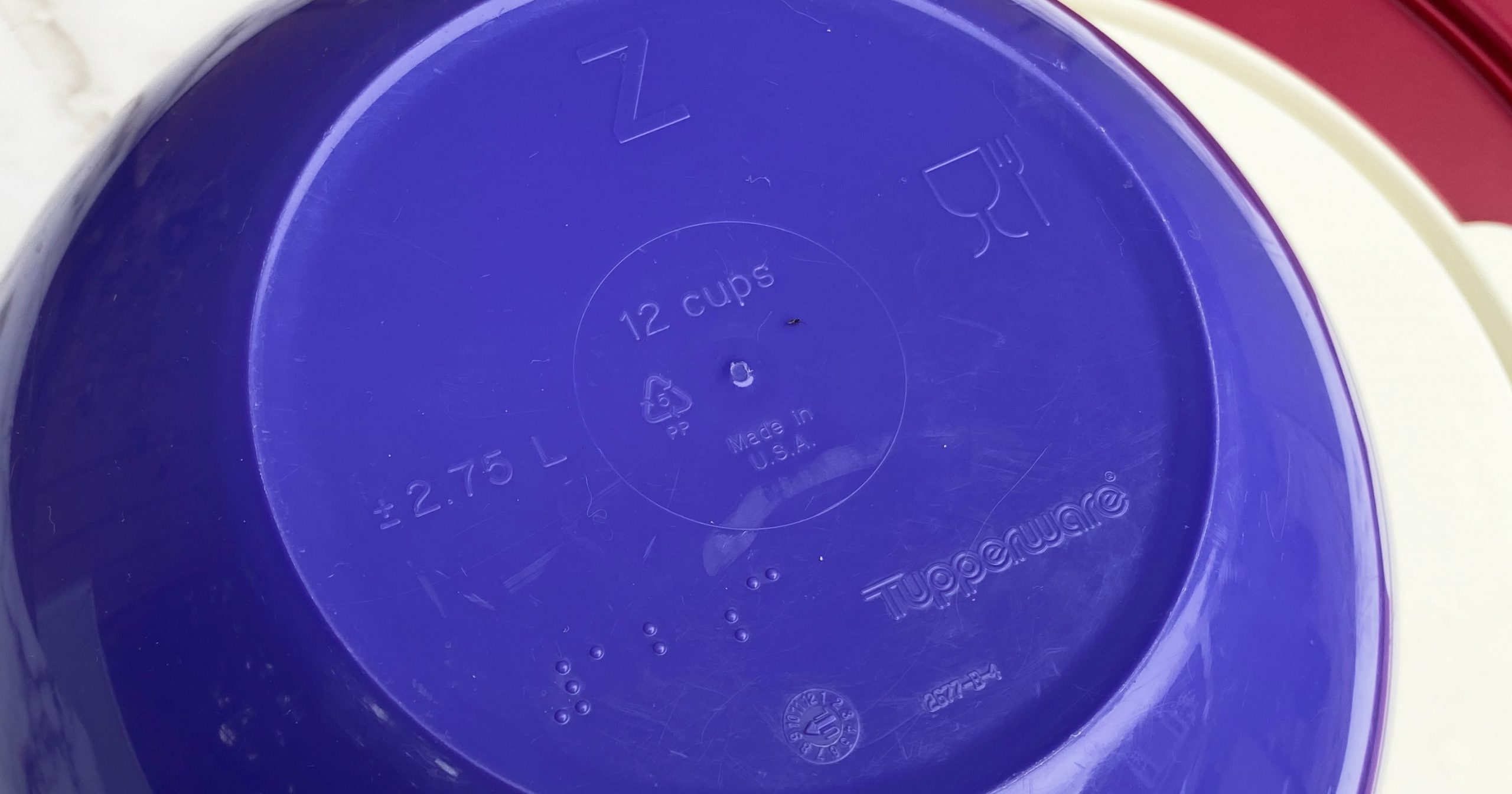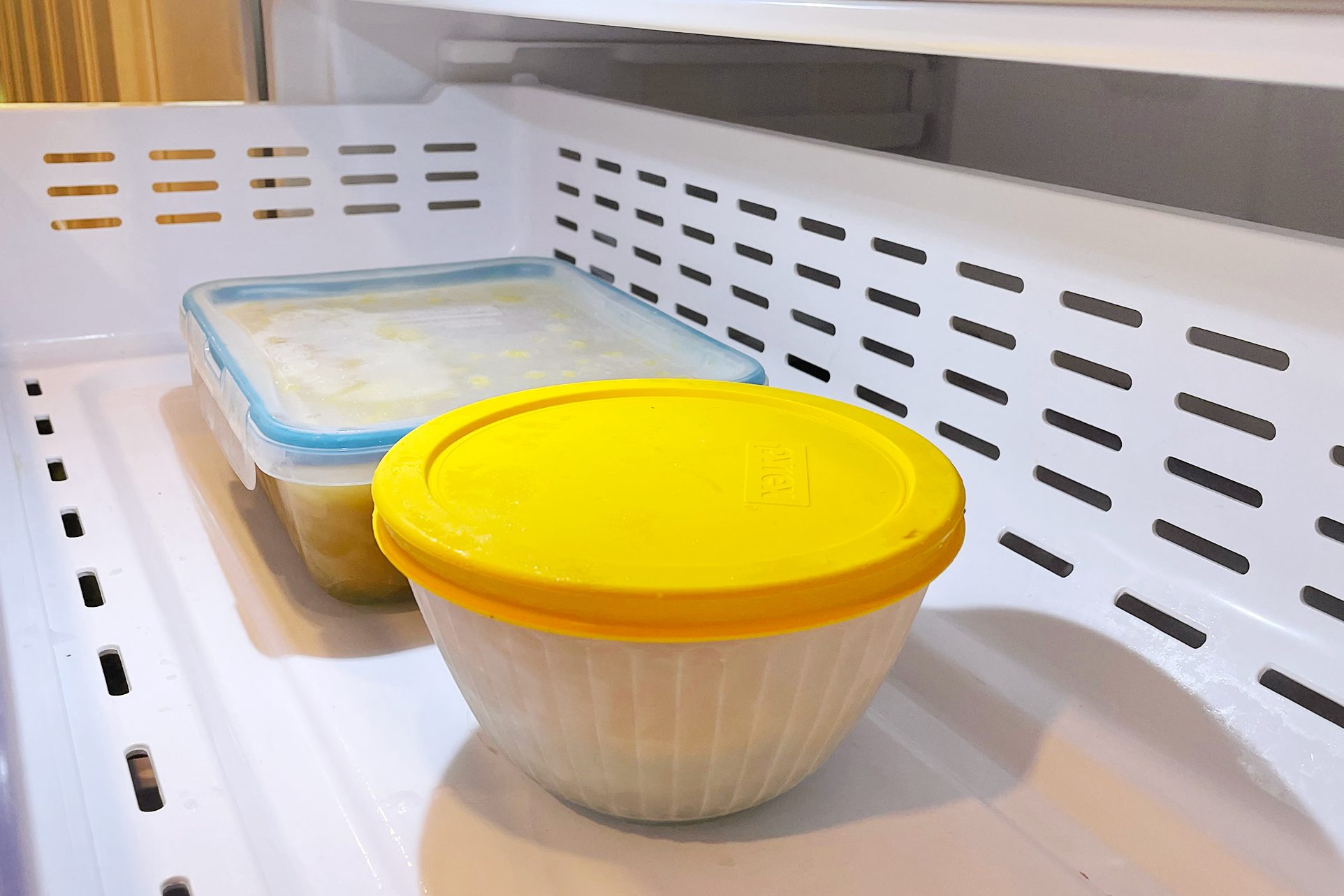Yes, you can put Tupperware in the freezer, but ensure it’s labeled as freezer-safe. Not all Tupperware is designed for extreme cold.
Tupperware has become a staple in modern kitchens due to its versatility and convenience. Freezing food in Tupperware can help preserve freshness and reduce waste. Many people rely on these containers to store leftovers, meal preps, or bulk foods. However, not all Tupperware is created equal.
Some products may warp or crack in freezing temperatures. Understanding which types are freezer-safe can save you from unpleasant surprises. This guide will help you choose the right Tupperware for your freezing needs, ensuring your food remains safe and delicious. Dive in to learn how to maximize your freezer storage with the right containers.
Introduction To Freezing In Tupperware
Many people wonder if they can put Tupperware in the freezer. Tupperware is a great choice for freezing food. It is durable and lightweight, making it easy to store.
Using Tupperware helps keep food fresh and safe. It prevents freezer burn and keeps moisture in. This ensures that meals taste great when thawed.
Common concerns about freezing in plastic include leaking and cracking. Tupperware is designed to handle cold temperatures. Choosing the right type is important for best results.
Always check the label for freezer-safe products. Properly sealing containers prevents air exposure. This keeps food tasty and prevents odors from mixing.
Types Of Tupperware Suitable For Freezing
Many types of Tupperware are safe for the freezer. Look for containers made of polypropylene or polyethylene. These materials can handle cold temperatures well. Always check for a freezer-safe label on the bottom.
Avoid using glass containers, as they may crack or break in the cold. Brittle plastics can also become unsafe. Thin plastics might warp or leak when frozen.
| Material | Safe for Freezing |
|---|---|
| Polypropylene | Yes |
| Polyethylene | Yes |
| Glass | No |
| Brittle Plastics | No |
Prepping Food For Freezing
Freezing food is a great way to keep it fresh. Using Tupperware can help you store food safely. Choose containers that are freezer-safe. They should be made from durable materials. Avoid using glass, as it can crack in the cold.
Leave some space at the top of the container. This allows food to expand when frozen. Make sure to seal the lids tightly. This helps to prevent air from entering.
Air exposure can cause freezer burn. This makes food dry and tasteless. To avoid this, use airtight bags or containers. Label your food with the date for easy tracking.
| Best Practices | Details |
|---|---|
| Use Freezer-Safe Containers | Choose durable materials designed for freezing. |
| Leave Space | Food expands, so leave room at the top. |
| Seal Properly | Ensure lids are tight to keep air out. |
| Label Your Food | Write the date for easy tracking. |

Credit: www.tasteofhome.com
Maximizing Space In Your Freezer
Maximizing space in your freezer is easy with smart organizing tips. Start by stacking Tupperware containers. Use different sizes to fit various items.
Label each container clearly. This helps you find food quickly. Use a marker or label maker for best results.
Place similar items together. Grouping vegetables, meats, and leftovers makes access easier. Remember to leave some space for airflow.
Consider using clear containers. This way, you can see what’s inside without opening them. It saves time and keeps things fresh.
Finally, check your freezer regularly. Remove old items to make room for new ones. Staying organized helps you avoid waste.
Safety Tips For Freezing And Thawing
Using the right thawing methods is essential for food safety. Always thaw food in the refrigerator. This keeps the food at a safe temperature. Avoid thawing food on the counter. Bacteria can grow quickly at room temperature.
Microwaving is another safe option for thawing. Just be sure to cook the food immediately after. Cold water can also be used for quick thawing. Keep food in a sealed bag to avoid contamination.
Avoiding contamination is very important. Always wash hands before handling food. Use clean utensils and cutting boards. Keep raw and cooked foods separate to prevent cross-contamination.
Creative Uses For Frozen Tupperware
Frozen Tupperware has many creative uses. One great use is making ice packs. Fill Tupperware with water and freeze it. This makes a handy ice pack for injuries. It molds easily to your body.
Another way to use frozen Tupperware is for freezing herbs and sauces. Chop fresh herbs and mix them with oil. Pour this mixture into Tupperware and freeze it. This creates flavorful cubes for cooking. Use them to add taste to your dishes.
Cleaning And Maintaining Tupperware After Freezing
Cleaning Tupperware after freezing requires special care. Always let the containers thaw before washing. This helps prevent warping or cracking.
Use warm, soapy water to clean Tupperware. A soft sponge works best to avoid scratches. Rinse thoroughly to remove all soap residue.
For tough stains, consider using a mixture of baking soda and water. Apply it to the stain and let it sit for a while. Rinse well after scrubbing.
Inspect your Tupperware regularly. Look for signs of wear or damage. Retire containers that are cracked or warped.
Using damaged Tupperware can lead to leaks or food contamination. Always prioritize safety when storing food.
:max_bytes(150000):strip_icc()/Should-You-Put-Your-Food-in-the-Oven-While-Its-Still-Preheating-4x3-aa142b08bc7440768e2723cb16a9ecfe.jpg)
Credit: www.allrecipes.com
Common Myths Debunked
Many believe that Tupperware cannot go in the freezer. This is a common myth. Most Tupperware is actually designed for freezing food. It helps keep food fresh and safe.
Some Tupperware may crack in the cold. Always check the label for freezer-safe symbols. Using the right containers prevents food waste.
Experts recommend using plastic containers that are BPA-free. Glass containers can also be good choices. Avoid metal containers, as they may cause freezer burn.
| Myth | Reality |
|---|---|
| Tupperware cannot be frozen. | Most Tupperware is freezer-safe. |
| All plastic containers are safe. | Check for BPA-free labels. |
| Metal containers work fine. | Metal may cause freezer burn. |

Credit: www.rd.com
Conclusion
Freezing Tupperware is safe, but make sure to choose the right type. Not all containers handle extreme temperatures well. Always check for freezer-safe labels to avoid damage. Properly storing food in Tupperware can save time and reduce waste. Enjoy the convenience of meal prep with the right choices!
